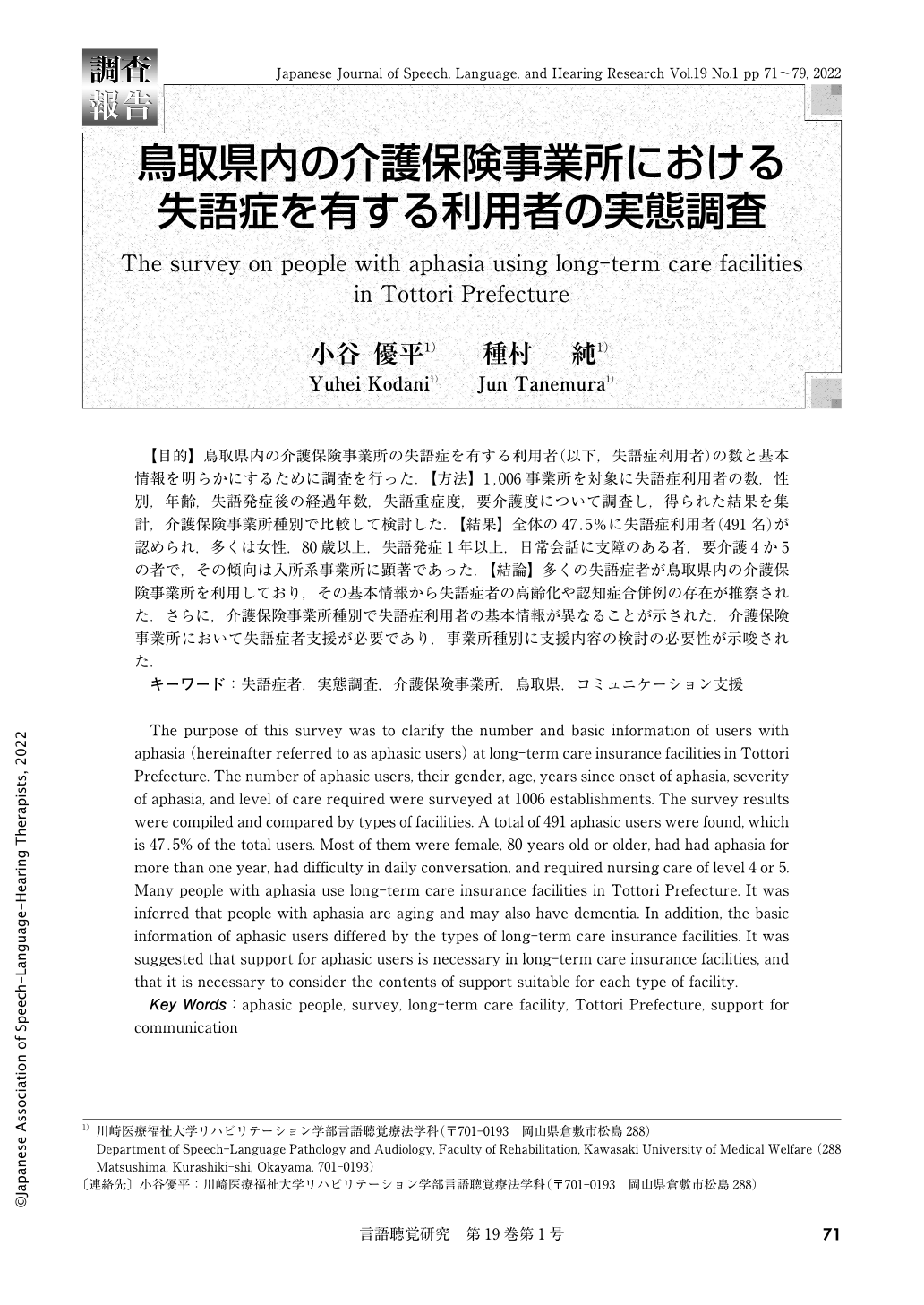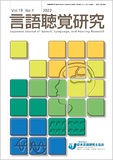Japanese
English
- 有料閲覧
- Abstract 文献概要
- 1ページ目 Look Inside
- 参考文献 Reference
【目的】鳥取県内の介護保険事業所の失語症を有する利用者(以下,失語症利用者)の数と基本情報を明らかにするために調査を行った.【方法】1,006事業所を対象に失語症利用者の数,性別,年齢,失語発症後の経過年数,失語重症度,要介護度について調査し,得られた結果を集計,介護保険事業所種別で比較して検討した.【結果】全体の47.5%に失語症利用者(491名)が認められ,多くは女性,80歳以上,失語発症1年以上,日常会話に支障のある者,要介護4か5の者で,その傾向は入所系事業所に顕著であった.【結論】多くの失語症者が鳥取県内の介護保険事業所を利用しており,その基本情報から失語症者の高齢化や認知症合併例の存在が推察された.さらに,介護保険事業所種別で失語症利用者の基本情報が異なることが示された.介護保険事業所において失語症者支援が必要であり,事業所種別に支援内容の検討の必要性が示唆された.
The purpose of this survey was to clarify the number and basic information of users with aphasia (hereinafter referred to as aphasic users) at long-term care insurance facilities in Tottori Prefecture. The number of aphasic users, their gender, age, years since onset of aphasia, severity of aphasia, and level of care required were surveyed at 1006 establishments. The survey results were compiled and compared by types of facilities. A total of 491 aphasic users were found, which is 47.5% of the total users. Most of them were female, 80 years old or older, had had aphasia for more than one year, had difficulty in daily conversation, and required nursing care of level 4 or 5. Many people with aphasia use long-term care insurance facilities in Tottori Prefecture. It was inferred that people with aphasia are aging and may also have dementia. In addition, the basic information of aphasic users differed by the types of long-term care insurance facilities. It was suggested that support for aphasic users is necessary in long-term care insurance facilities, and that it is necessary to consider the contents of support suitable for each type of facility.
Key Words:aphasic people, survey, long-term care facility, Tottori Prefecture, support for communication

Copyright © 2022, Japanese Association of Speech-Language-Hearing Therapists. All rights reserved.


